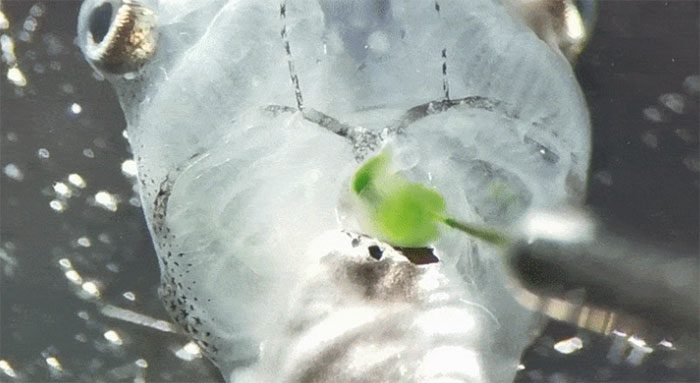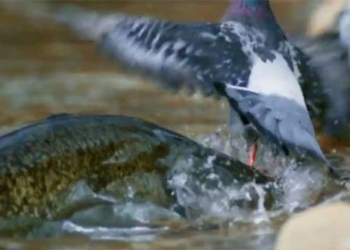Researchers at Ludwig Maximilians University (Munich, Germany) have injected photosynthetic algae into tadpoles, creating a symbiotic relationship between the amphibians and microorganisms, allowing the amphibians to survive without oxygen from the environment.

Scientists inject a special type of algae into the body of a tadpole.
This experiment is considered significant for the medical field. For instance, it could pave the way for technology that helps keep someone alive during a stroke, a condition that can cut off the oxygen supply to their brain.
In the experiment, after injecting a special type of algae into the tadpole, the researchers deprived them of oxygen until brain activity ceased entirely. They then illuminated the water tank, activating the algae and producing oxygen. At that moment, the tadpole’s brain function resumed, demonstrating that the algae successfully kept their new host alive.





















































